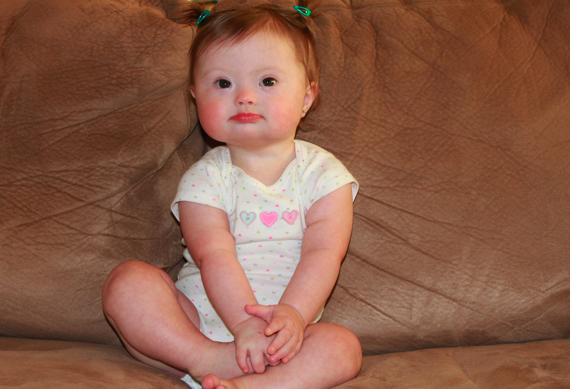In the United Kingdom, a new pre-pregnancy blood test is set to go on the market that will screen couples for thousands of genetic flaws that they could pass on to their unborn baby. After the testing, they will know if their child has the chance of developing a variety of conditions, such as cystic fibrosis, blood disorders or conditions that cause blindness.
According to the Daily Mail, the National Health Service already provides pre-pregnancy testing but focuses on people with a family history of just a few conditions.
However, unfortunately, it is possible that this new testing could lead to more abortions. Currently, there are already maternal blood tests that look for neural tube defects like spina bifida, a deformity of the spinal column; anencephaly, an absence of all or part of the brain and skull; and Down syndrome. And even though these tests have helped families gain better insight on their child, they’ve also led to abortion.
CLICK LIKE IF YOU’RE PRO-LIFE!
In fact, statistics show that 90% of women who receive the pre-natal diagnosis that their child with have Down Syndrome choose abortion, and for women who find out their baby will have spina bifida, 68% abort.
As LifeNews previously reported, in 2007, the American College of Obstetrics and Gynecology (ACOG) changed their recommendations for prenatal screening from offering tests to pregnant women over age 35 to offering them to all pregnant women. Their rationale was that while women over age 35 had the greatest risk for conceiving a child with Down syndrome, most children with Down syndrome were born to women under the age of 35. The expanded screening would allow for these cases to be detected prenatally.
Here’s more on the new pre-pregnancy test in the United Kingdom:
Spanish firm iGenomix, which developed the test, says pre-pregnancy genetic screening could soon become as commonplace as ultrasound scans
The test is aimed at people who are carriers of disease genes, meaning they will not have symptoms themselves and may even be unaware of the problem lurking in their DNA.
Most people have several disease genes and a recent study by iGenomix found that 8 per cent of couples were ‘clinically incompatible’, meaning both had the same faulty DNA. Such couples would be told there was a one in four chance of their child being ill and counselled on their options.
These include an IVF technique, in which only healthy embryos are implanted in the womb, the use of donor eggs or sperm or adoption. Some women may opt to get pregnant naturally and abort later.
Dr Peter FitzGerald, managing director of Randox Health, said: ‘Our wide-ranging new screen will detect potential problems before pregnancy by obtaining information from both parents. With this test, we can alert prospective parents to the risk of serious genetic conditions.’
There is another pre-pregnancy test available privately but it checks for only 100 diseases. Philippa Taylor, of the Christian Medical Fellowship, said the limited and expensive options available to couples who ‘fail’ the test could push them toward getting pregnant naturally – and aborting if the baby is unhealthy. She added: ‘This test is going to create further anxiety through the over-medicalisation of pregnancy.’
Dr David King, of campaign group Human Genetics Alert, warned that if testing became popular, couples could feel pressurised to use it to avoid having children with genetic conditions. He added: ‘That will lead to a society in which parents with disabled children will be blamed and disability will become less and less acceptable. We need regulation and ethical debate before such tests are introduced.’








